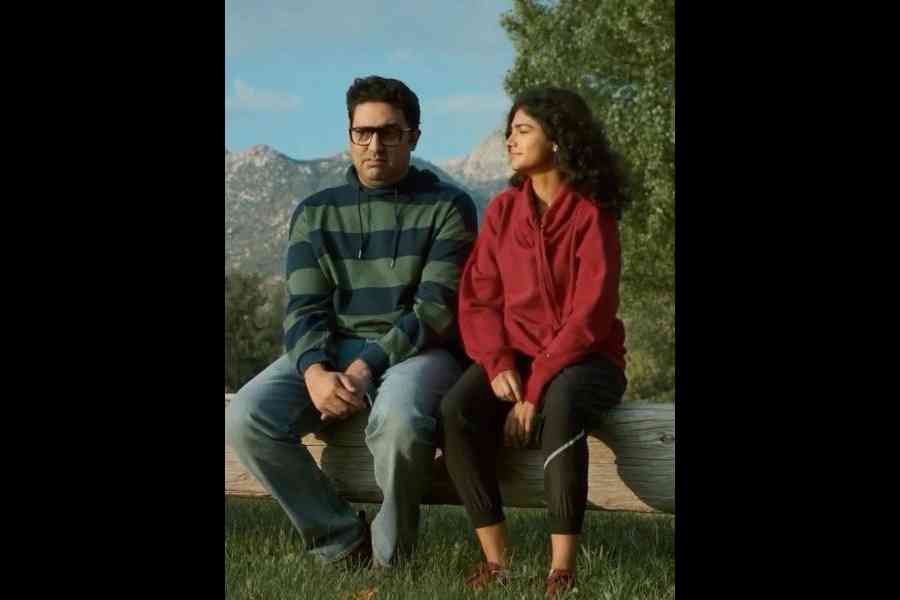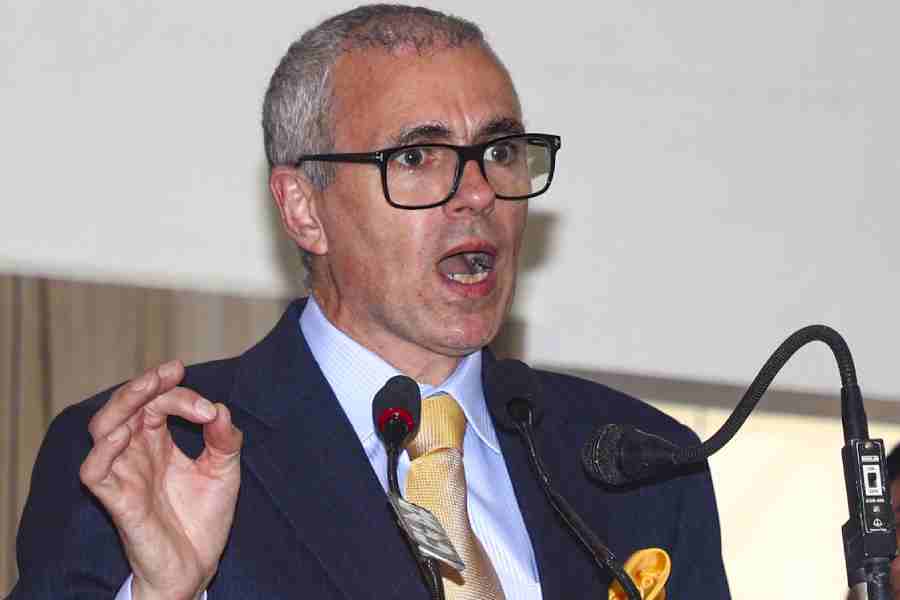Shoojit Sircar is known for telling stories about so-called ordinary individuals, the journey of whose so-called ordinary lives almost always has a cathartic effect on the audience. His latest film, I Want to Talk, follows roughly the same pattern. Combining the pathos of October with the humour of Piku, this is a story of guts, purpose and perseverance that will convince you of the power of positive thinking without leaving you feeling overwhelmed.
Based on a true story, I Want to Talk is about Arjun Sen, a successful advertising professional based in the US. Abhishek Bachchan portrays the character in an unpretentious, unassuming style, but revealing the layers of Arjun’s persona in a way that allows us to make judgments on him unhesitatingly. A typical marketing professional, who uses his gift of the gab to convince others and get his own way, his flaws stick out like a sore thumb. Carrying the film on his shoulders to a great extent, he does a fairly good job in a mentally gruelling role that will surely go down as one of the finest he has ever played. There is nothing lovable about his character, but the success of his performance and of the storytelling lie in the fact that the audience finds themselves rooting for him subconsciously after he is diagnosed with cancer and is given 100 days to live.
That may partly be attributed to his little daughter Reya (Pearle Dey), who stays alternately at her divorced parents’ homes. Mature, sensible and sorted, her evolving relationship with her Baba puts into perspective their identities and aspirations that are easily relatable to the contemporary viewer. Her silent expressions of her love for him and her yearning for his love are, perhaps, some the film’s more emotional moments. The film’s structure, pivoted on the father-daughter relationship, also allows Arjun’s growth into a more loving and responsible father to run parallel to his desire for defying death. Ahilya Bamroo as the older Reya impresses as the modern teenager, her nonchalance and hot-headedness serving as a cover for her sadness, and her patience and kindness.
The importance of friends, family or their absence is definitely one of the focus areas of this story, but Sircar takes care to ensure that it steers clear of all melodrama or sentiment. Arjun’s relationship with his former wife is hardly mentioned, and she is barely shown in the film. His friendship with his caregiver Nancy (Kristin Goddard) is beautifully portrayed, and is an ironical, tragic reminder of the hazards of loneliness in modern life.
Though the film does not have the attractions of epic scale or grandeur, it manages to engage the audience and sustain their interest with humour, mostly of the cynical and sarcastic variety. Even the most profound moments are salvaged from turning emotionally intense by clever, witty dialogues that make the audience smile and look at the bright side of life. Besides Jr Bachchan himself, Jayant Kriplani as Dr Jayanta Deb, his surgeon, turns in a delightful performance and demonstrates top form executing this brand of humour on screen. The casual, matter-of-fact attitude with which the duo approach Arjun’s illness and his subsequent treatment shows that though death is random, inevitable and unpredictable, life can also offer you enough chances at beating death.
Sporting imageries abound in this film about the protagonist’s race against death. Aside of the marathon that Arjun Sen participates in towards the end of the film, scenes of Dr Deb and his patient playing golf or going fishing together provide a glimpse of the natural beauty of California, which serves as a stage for this human drama to unfold. The massive, imposing mountains that are seen in the distance are symbolic of death looming over the horizon, but which Arjun is stopped from reaching right at the beginning of the film. His bruised and battered trolley bag which he carries to the hospital every time he goes in for a medical procedure becomes a symbol of the man himself and his fight to survive and be functional, no matter how many scars he may have on his body due to his surgeries.
What the film presents us with are advice and lessons about the journey of life, spun into a tale full of warmth, vigour and candour. A salute to the spirit of life, this story of hope and healing could just be what the doctor ordered, and give us something to believe in and restore our faith amid the turbulent times in which we live.










